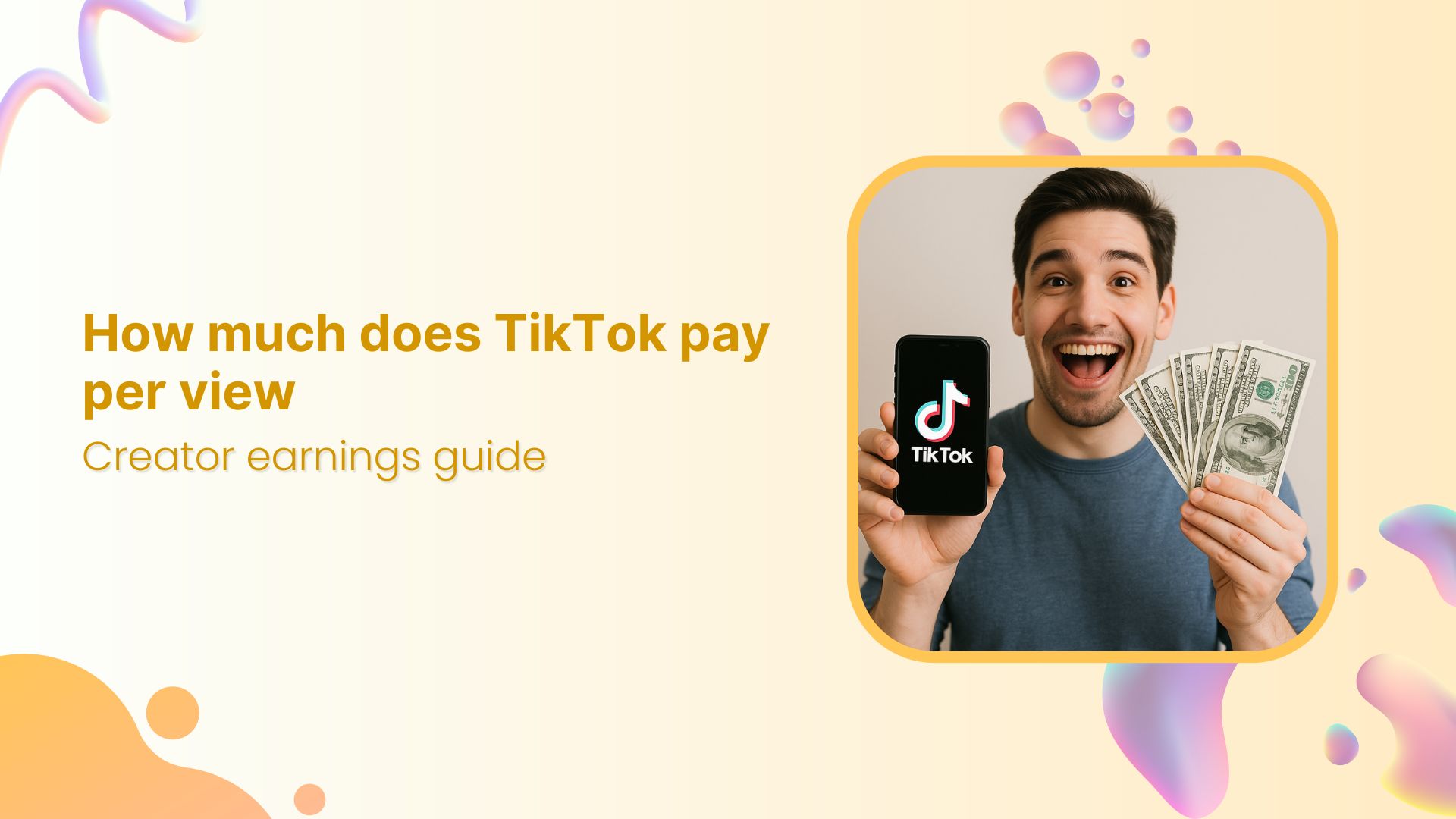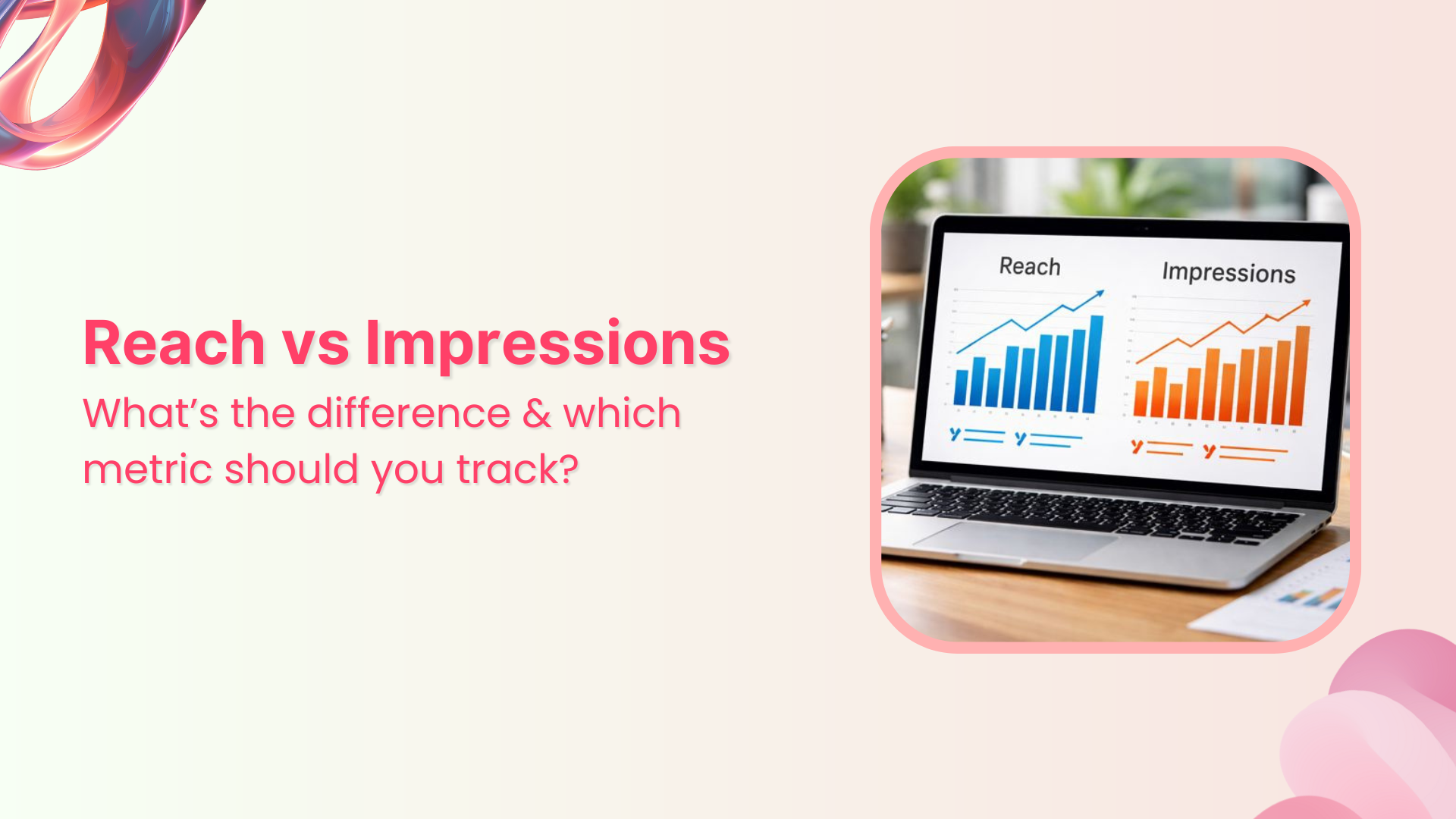Bulk-generate & schedule posts in seconds with Smart Scheduling. Try now!
Social media compliance: Everything you need to know

Social media isn’t as simple as it may look. However, most users don’t realize it unless they trip over and almost fall over something.
Have you wondered about the social media rules to follow when using any social media platform?
The majority of social media users don’t pay any attention to understanding, learning, and practicing social media guidelines and rules.
So, let’s talk about the key aspects of social media compliance that everyone needs to know.
The easiest way to manage and grow your social channels.
Try ContentStudio for FREE
So, without any further ado, let’s get right into it.
What is social media compliance & why does it matter?
Social media compliance simply means following the rules and regulations of social media platforms when publishing content and engaging with the audience.
Social media compliance isn’t that simple. When users sit down to read the terms and conditions of the social media platforms, they discover a lot of clauses that come as a surprise.
The rules and regulations may vary from country to country, state to state, or platform to platform. However, the core aspects of media compliance include users’ data privacy, intellectual property, content theft, marketing rules, and advertising regulations.
It matters because brands and entrepreneurs don’t want to indulge in legal battles with other brands, entrepreneurs, or platforms.
Social media platforms must take compliance very seriously, as their goal is to ensure the safety of their users’ content, private data, and sensitive information.
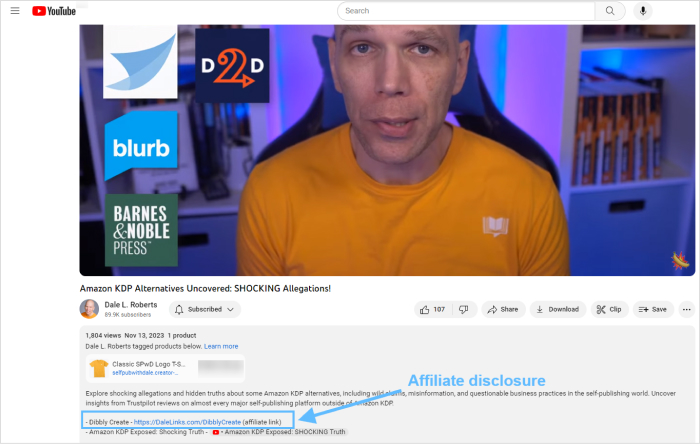
Example: Dale L. Roberts is a self-publishing expert and YouTuber. He knows how to use social media platforms and adhere to compliance.
Since FTC allows social media creators to disclose their affiliate links, a lot of YouTubers clearly state “affiliate link” next to their affiliate links.
Most common social media compliance risks
Social media is continuously evolving and creating new opportunities for brands and individuals. On the flip side, using social media platforms adds additional responsibility on the users to understand and implement terms of use.
To mitigate the risk involved in using social media to engage with people, building an audience, and growing the ROI, it’s vital to comprehend potential social media compliance issues.
Let’s take a moment to go through the most common compliance risks and learn how to deal with them:
1. Understanding social media filtering
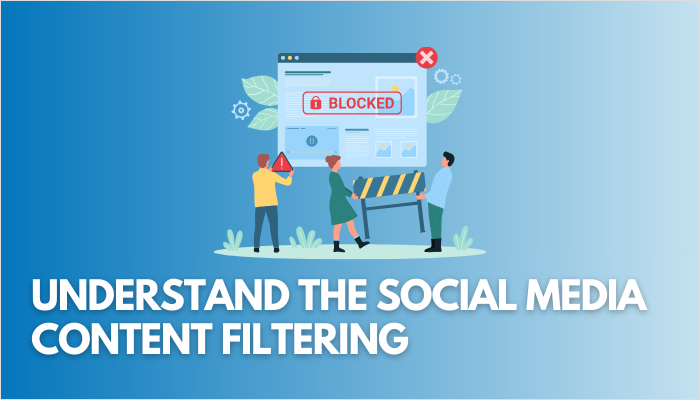
You may have heard about the “personalized ads” “users must be 18 or older” or “cookies going away” — all these internet and social media topics have been quite popular.
Determining how social media algorithms allow tailored content filtering based on user connections, follows, and interactions are vital. Since this customization empowers advertisers to target specific audiences, it may land some advertisers in hot waters due to social media compliance violations.
Understanding social media filtering and abiding by user targeting rules might be helpful in this regard.
2. Navigating advertising rules on social media
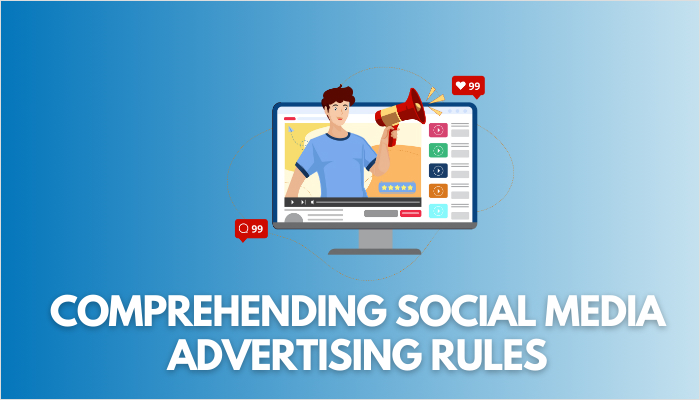
Brands, small businesses, entrepreneurs, and influencers use social media for marketing. However, outdated advertising regulations could pose challenges to the whole ecosystem.
It’s necessary for regulatory institutions to deeply analyze disclosure rules to ensure compliance with evolving communication methods and social media marketing mediums.
3. Managing employees’ social media freedom
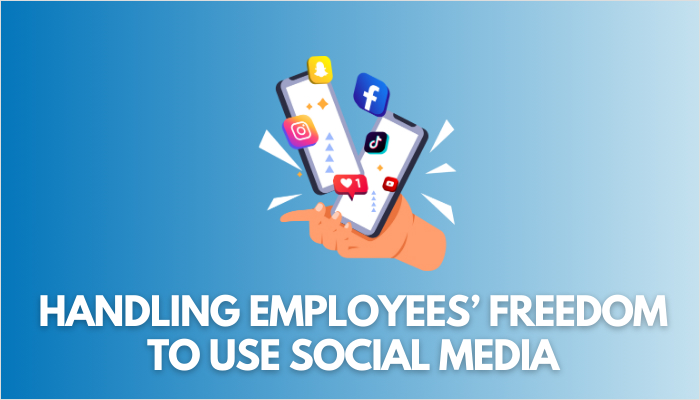
Social media, which creates opportunities for businesses, also adds specific challenges. One of those challenges is dealing with employees’ social media comments or posting content.
In some cases, businesses find it challenging to handle employees’ freedom on social media, which puts a company’s reputation at stake. No company would want its representatives to be involved in any event with a negative connotation.
Defining the social media regulations at the company level could help establish a sound strategy for creating a positive workplace atmosphere and avoiding negative reflections on the institution.
Related Read: How to positively handle negative comments on social media?
4. Ensuring users’ privacy in social media interactions
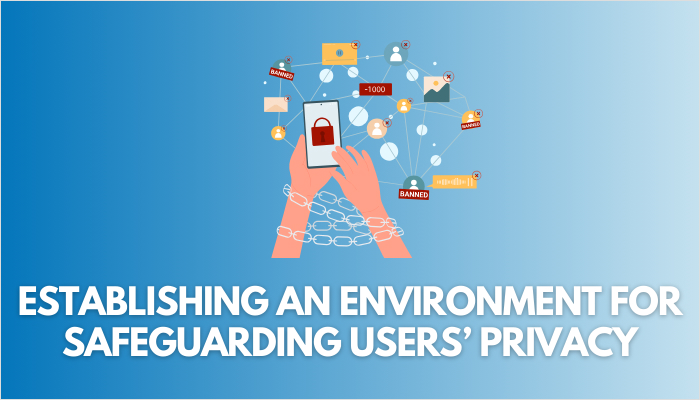
Social media platforms are used by millions of users every month. Data safety is crucial to every social media platform’s success. That’s why it’s increasingly important for users to understand how to remove personal information from the internet, especially when it’s being misused or shared without consent.
Privacy rules must be upheld on social media platforms to prevent data breaches. Social media platforms must ensure they promote privacy in social media interactions and avoid potential data leaks or privacy violations.
5. Robust consumer complaint management on social media
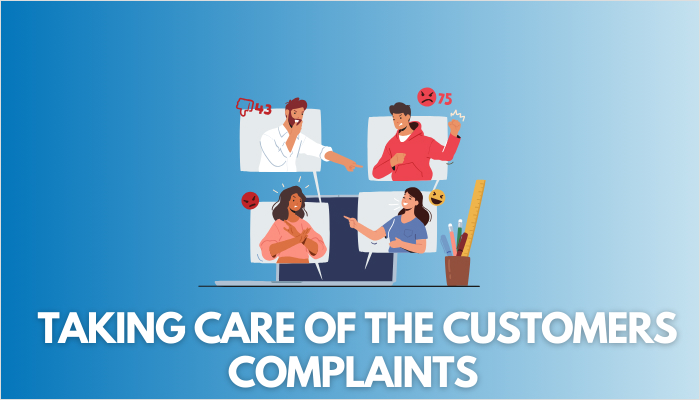
Social media is undoubtedly a public debate platform, no matter what industry you belong to. Any social media platform could become a public platform for consumer complaints, necessitating strong complaint management systems.
Companies and organizations must monitor social media consumers’ grievances, even if they don’t have an official presence on a platform. Therefore, continuous social media monitoring is crucial to addressing consumers’ complaints effectively and maintaining a positive public image.
So, these are some social media compliance risks that every brand and individual should comprehend going forward.
How to stay compliant on social media: An industry-wise breakdown
Most users don’t know about social media compliance, regardless of the industry. Spreading awareness about the potential compliance risks and the rules regarding this would eventually help the cause.
Let’s take a look at the social media risks involved and compliance regulations that apply to different industries or territories:
Social media compliance for education
In the US, the Family Educational Rights and Privacy Act (FERPA) is a federal law that safeguards the confidentiality of student education records, primarily applicable to educational entities receiving funds from the Department of Education.
It’s no surprise that education institutes and tutors infuse social media into their marketing and engagement strategies to build a connection with prospective students.
However, educators must promote social media compliance in their teaching systems. Caution should be exercised to avoid sharing sensitive information online, such as student grades, course schedules, or class lists, as such actions could potentially breach FERPA compliance standards.
Udemy is a great example. They stated everything related to user policy, terms and conditions, and other compliance guidelines in their legal section on the website.
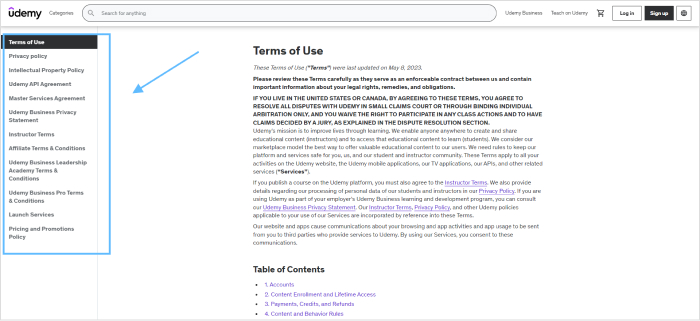
Social media compliance for healthcare
Marketers are usually skeptical when working in the healthcare niche. Similarly, bloggers consider healthcare one of the Your-Money-Your-Life (YMYL) niches requiring EEAT to succeed in SEO.
Social media compliance for the healthcare industry means getting acquainted with regulations like HIPAA in the US. The fundamental principles of HIPAA offer valuable guidance to social media influencers and digital marketers who are in the lifestyle, wellness, and health niche.
Since HIPAA refrains healthcare providers from disclosing any protected health information (PHI) on social media platforms, influencers and brands in the health, medical, and wellness niches need to learn more about this law.
PHI encompasses various elements, including:
- Primary identifiers such as name, address, birth date, and SSN
- A patient’s health record and medicinal history
- The details related to payments made for the provided care to the patient
- Photos that portray a patient’s name, face, or other identifying features are visible
To avoid common breaches, such as sharing patients’ case studies without explicit written authorization from the patient, using photos featuring patients’ faces, and building a custom audience using email addresses for ad targeting, it’s vital to seek legal advice from the relevant experts.
ODYS Global knows the importance of EEAT, so they added it to their extra services.
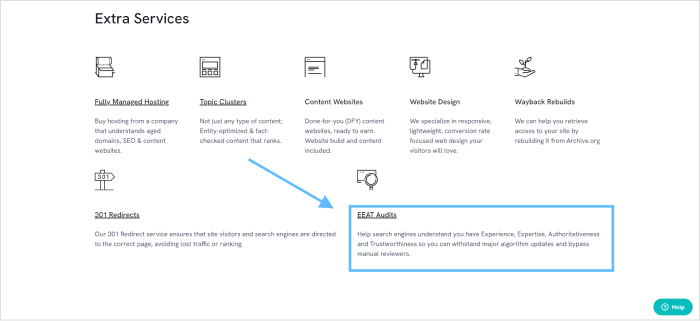
Also Read: Social media marketing strategy for doctors & health professionals
Social media compliance for the financial industry
The financial industry is one of those industries that face substantial compliance obligations when engaging on online platforms.
In the US, the Securities and Exchange Commission (SEC) diligently oversees social media activities to ensure adherence to compliance standards.
The key regulations set by the SEC regarding social media use include disclosure statements when sharing certain information.
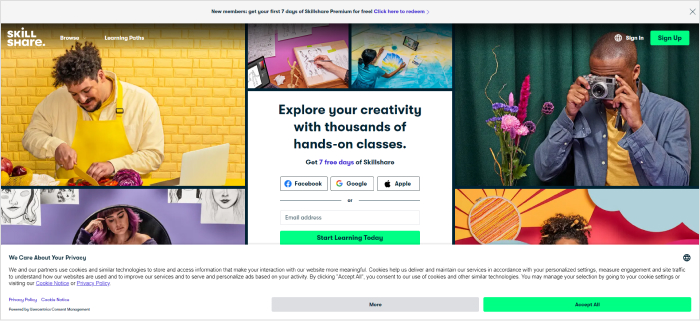
Moreover, the Financial Industry Regulatory Authority (FINRA) oversees social media regulations for brokers. It ensures that static and interactive content on social media comply with the regulations.
The Financial Conduct Authority (FCA) in the United Kingdom governs social media activities for financial institutions. In Australia, the Australian Securities and Investments Commission (ASIC) serves as the regulatory authority for financial institutions.
So, there are social media compliance regulations across the globe, and more countries are embracing the fact that social media regulation is essential to consumers’ safety, well-being, and financial protection.
Fundstr is an online finance wallet service. Look at the legal resources section on their website, as they have stated everything related to policies, cookies, fraud prevention, and other legal requirements on their website.
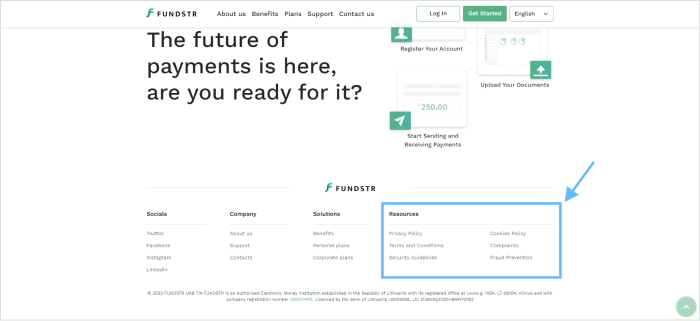
Social media compliance for digital marketing
Most blogs, websites, SaaS companies, and online tools highlight on their website that they are entirely GDPR compliant. Let us elaborate on what it is and why it is necessary.
General Data Protection Regulation (GDPR) is designed to safeguard individuals’ personal and confidential information within the EU and the European Economic Area, establishing a unified standard for data security legislation throughout Europe.
To comply with GDPR, companies or individuals must obtain explicit consent from these consumers when executing remarketing advertisements on social media targeting EU-based consumers. This consent is typically acquired through a sign-up or opt-in module directly embedded within the ad.
These were some social media compliance regulations across different industries that companies and entrepreneurs should be aware of when using social media for business.
MailerLite is an email marketing software that provides email marketing and newsletter services. They clearly stated their cookies statement like many other digital marketing businesses to stay compliant with the digital marketing regulations.
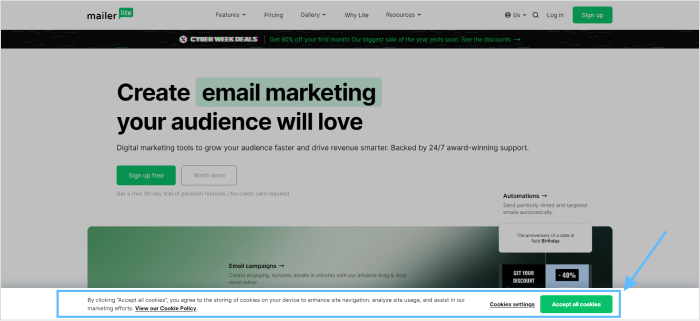
One of the requirements for creators and marketers in the digital marketing industry is to disclose their affiliates or partnerships with brands. Here’s an example:
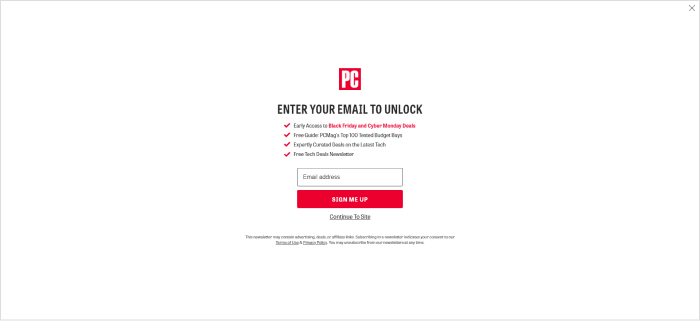
Ways to ensure social media compliance
Social media compliance has a broad spectrum that companies and influencers must understand before stepping on the wrong foot. Here are some of the ways to ensure social media compliance to avoid any legal, moral, and financial debacle:
Build a social media compliance strategy
Establishing a social media compliance strategy involves outlining the social media publishing rules, content policies, and guidelines that govern an organization’s online presence without causing any legal complications.
A well-defined social media strategy ensures that the team members involved in social media activities completely understand their roles and responsibilities while putting out content or engaging with the audience in any shape or form.
Example: LinkedIn Ads
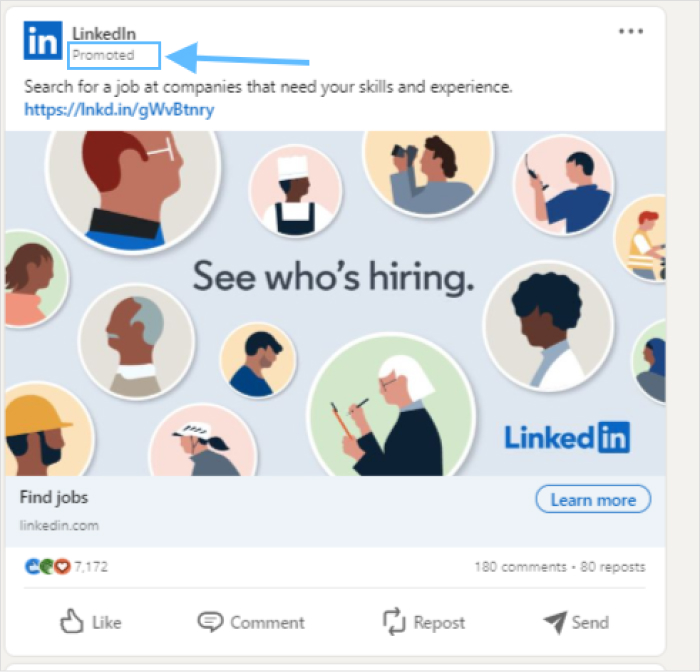
LinkedIn vividly states “Promoted” under the advertiser’s name when running an ad campaign on the platform. This social media platform for connecting with professionals who understand how to comply with social media regulations.
LinkedIn Marketing
Establish your brand’s profile on LinkedIn by consistently posting engaging content and engaging with the community.
Get Started for FREE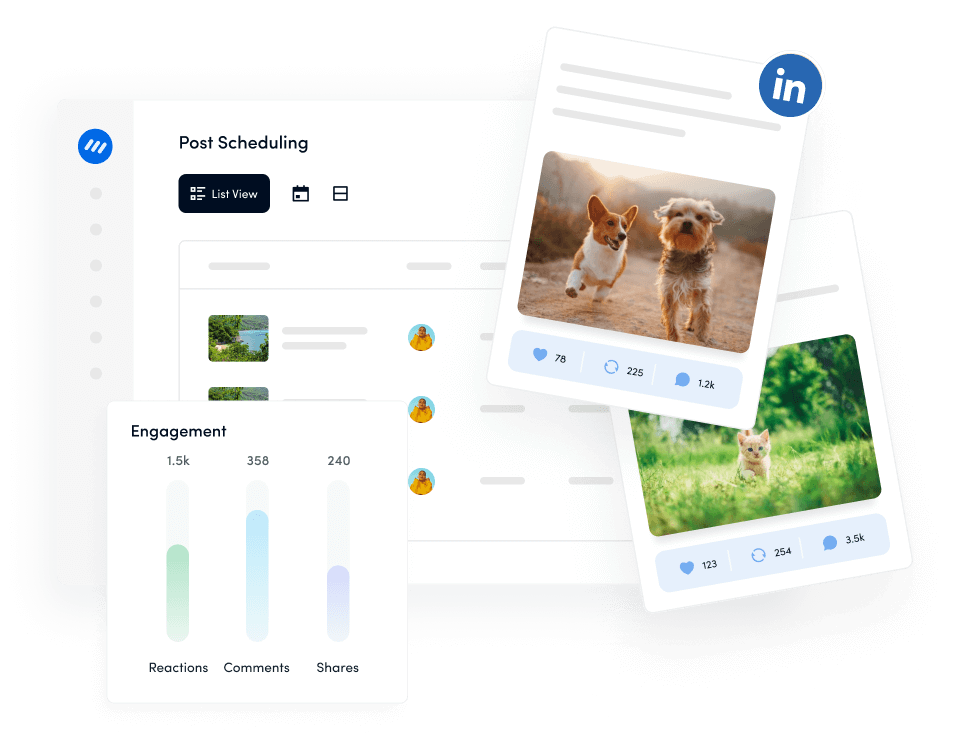
Educate employees on social media compliance
A lot of employee education comes from workplace culture and norms, but formal training is often required to scale things up. Ensuring that employees comprehend and adhere to the compliance policies is crucial.
One of the best ways to ensure social media compliance is to arrange employee training programs. These training sessions can cover topics such as using social media, disclosing affiliations, protecting confidential information, and potential legal consequences.
Undoubtedly, well-trained and educated employees are better equipped to navigate the complexities of social media compliance and contribute to a safe and healthy online presence for the company.
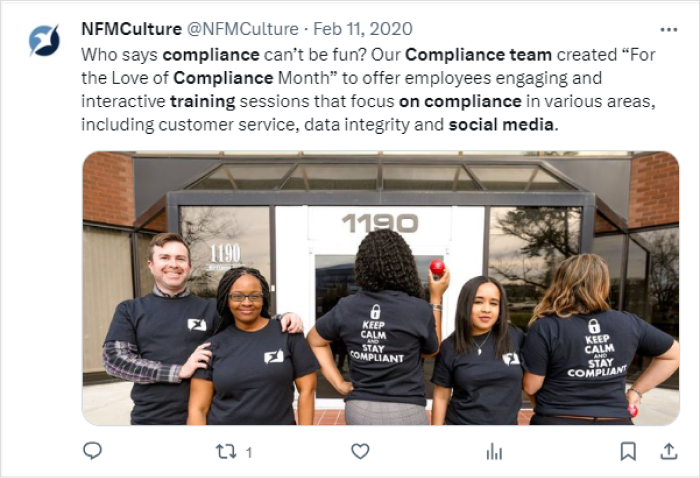
Example: NFM Lending
NFM Lending shared a picture of their employee’s training on compliance on Twitter. They set an excellent example for brands and organizations to educate employees on social media compliance.
Add necessary disclosures to your content
Adding affiliate and advertising disclosures in social media content is compulsory in several parts of the world. Social media influencers use a disclosure (#ad or AD) in their content or captions/descriptions to clarify that they are being compensated by the advertiser.
Since adding disclaimers in social media content helps communicate the relationship of the creator with the brand, it clearly ensures that the social media content complies with social media regulations.
These disclosures or disclaimer statements may vary depending on the content and platform but the concept behind the idea is the same. It brings clarity, transparency, and legal protection for both the organization and its audience.
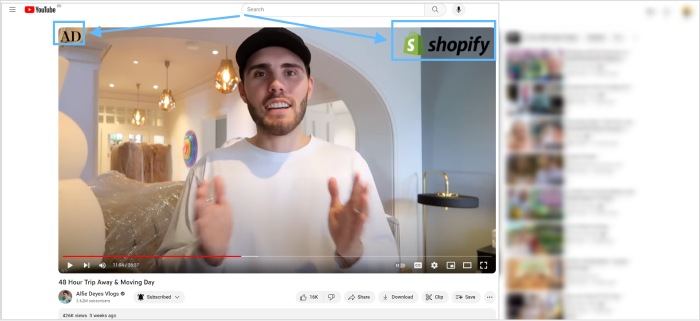
Example: Alfie Deyes
Alfie Deyes is a famous British YouTuber and vlogger. He often does brand sponsorship and paid videos. He clearly mentions the “AD” when mentioning the sponsor in the video to stay compliant.
Secure sensitive customer information
Hundreds of thousands of apps and software integrate with social media platforms. If you’re a SAAS company or software developer creating a tool/software that integrates with any social media platform on the user end, pay close attention to social media compliance.
Safeguarding customer information and data is a critical aspect of social media compliance. Organizations and developers must comprehend and implement measures to secure sensitive data and knowledge to adhere to privacy regulations.
Stay up-to-date on industry standards
Social media and digital marketing are dynamic fields with ever-evolving standards and regulations. Staying informed about changes in industry standards, legal requirements, and platform policies is essential for maintaining compliance.
Regular updates enable organizations to adapt their strategies and practices accordingly, minimizing non-compliance risk.
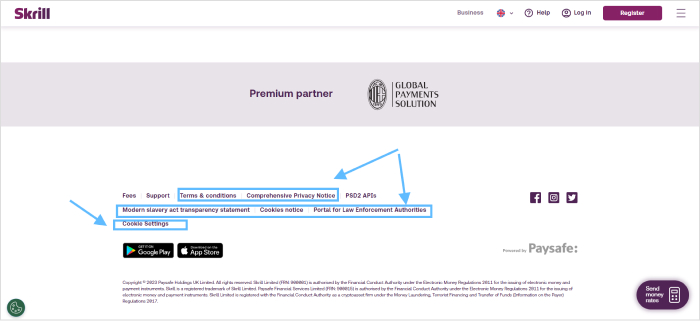
Example: Skrill
Skrill is a financial institution that remains vigilant, active, and well aware of all the requirements for a financial business to fulfill to stay compliant with financial regulations. Understanding how to withdraw money from Skrill is essential for users to stay compliant with regional verification and financial regulations.
Monitor social media activities at the workplace
Regular monitoring of social media activities within the workplace helps identify and address compliance issues promptly. This may involve using monitoring tools to track posts, comments, and interactions.
Monitoring ensures that employees are adhering to the established guidelines, preventing potential legal and reputational risks associated with non-compliant behavior.
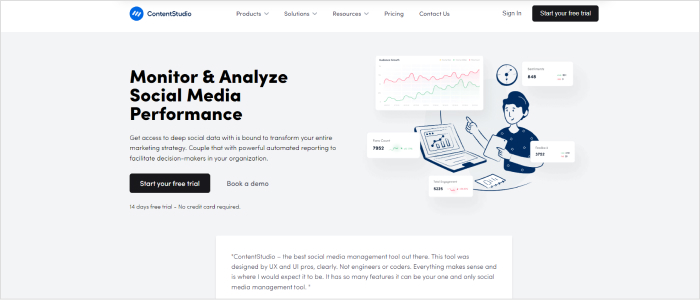
Example: ContentStudio Analytics
ContentStudio has a robust analytics system for analyzing and monitoring social media content performance, engagement, click-through rate, and other relevant metrics.
It provides social media managers an upper hand in monitoring the social media workflow from the social media compliance standpoint.
Establish a social media content approval system
Designing and implementing a content approval system that scans all social media content is necessary in today’s world. It ensures that the social media content aligns with the organization’s compliance strategy and complies with the social media regulations before going live.
This system typically involves a review process where content is evaluated for accuracy, appropriateness, and policy compliance before publication. Approval mechanisms help prevent the dissemination of misleading or non-compliant information.
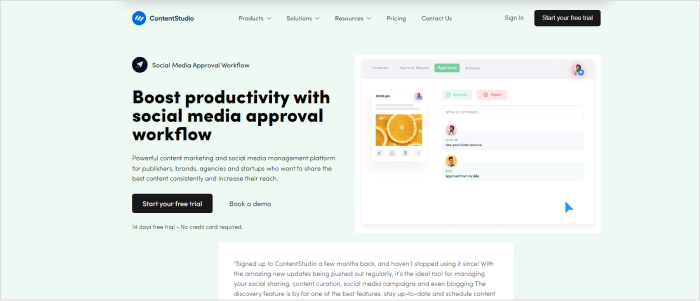
Example: ContentStudio’s Approval Workflow
ContentStudio is a powerful social media management dashboard with multiple social media scheduling, managing, and analysis features.
One of the features of ContentStudio is approval workflow, which allows managers to create a social media content approval system. It’s an effective way to keep the check and balance on the team’s social media content and stay compliant with social media regulations.
These were some ways to ensure social media compliance for businesses and influencers.
Benefits of social media compliance
It goes without saying that adhering to social media compliance rules and regulations has its benefits. However, these benefits aren’t very much highlighted in the social media marketing space. Let’s take a look:
1. No legal complications when posting content
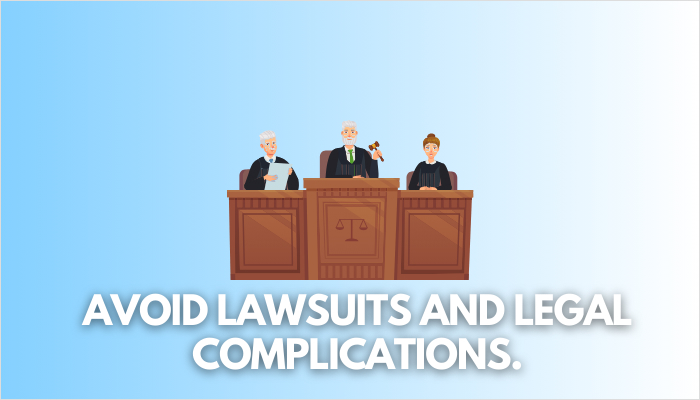
Social media compliance is not a piece of cake. Brands and influencers strive to understand the regulations to stay compliant. One of the benefits of social media compliance is that there are no legal complications when using social media for marketing and engagement.
Since social media marketing heavily relies on putting out content, it’s essential to know the tactics that are allowed and the ones that aren’t.
ii. Admirable brand reputation in the market

Brand reputation means a brand is in good standing without legal compliance issues, breach of conduct, or DMCA complaints. It ensures that a brand strengthens its roots in the market and establishes a solid fan base over time.
Brand reputation is a massive perk of social media compliance. Sometimes, it goes unnoticed unless a competitor gets in trouble. Therefore, compliance leads to a praise-worthy brand reputation that establishes authoritativeness and trustworthiness in consumers’ minds.
iii. A strong and trusted social media community

One of the benefits of social media compliance is that brands, influencers, and entrepreneurs openly talk about their social media compliance and the regulations they adhere to when running their social media operations.
Customers or followers could quickly notice the efforts a brand is putting into social media compliance. It allows them to build a solid, trusted community around their followers or customers.
iv. Data security for the consumers

Data security is an essential concern for online businesses. Customers hardly ever trust a business again if they come across an incident where a business is guilty of data security breaches or lack of efficiency in the customers’ data protection.
Compliance ensures that the social media company handles sensitive data and information with proper security protocols. It includes protecting user data, adhering to privacy policies, and implementing safeguards against data breaches.
v. Zero non-compliance fines or penalties
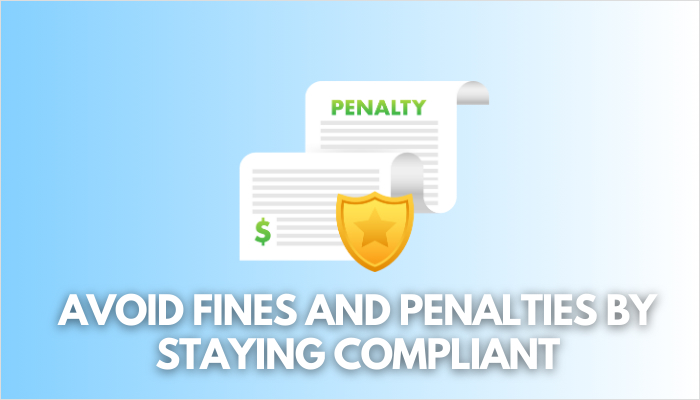
Compliance with the regulations regarding publishing on social media platforms reduces the risk of non-compliance, fines, and penalties.
Social media compliance helps brands, entrepreneurs, and organizations identify and address potential risks associated with social media activities and content publishing before they arise.
These are some of the benefits of social media compliance that businesses and influencers must know so they don’t procrastinate about developing a policy.
Let’s conclude: Comply with social media regulations
Social media compliance is not rocket science. It may sound odd and difficult because we never talk about social media rules and regulations every day.
Most people go through the terms and conditions sections of the social media platforms when they face account termination or community guideline strikes, and the team refers to the specific article of the terms of use.
If a user doesn’t comply with the social media terms of use, the platform has the right to terminate their account or completely ban this person from rejoining the platform.
Social media compliance is crucial to your online success. The core idea of writing this piece of content was to make the readers aware that social media isn’t just about posting unique, exciting content and building an audience.
In fact, several aspects of social media remain behind the scenes but play a vital role in brands’ and individuals’ social media marketing campaigns.
Experience organized workflow with a unified social media management platform for agencies.
Try ContentStudio for FREE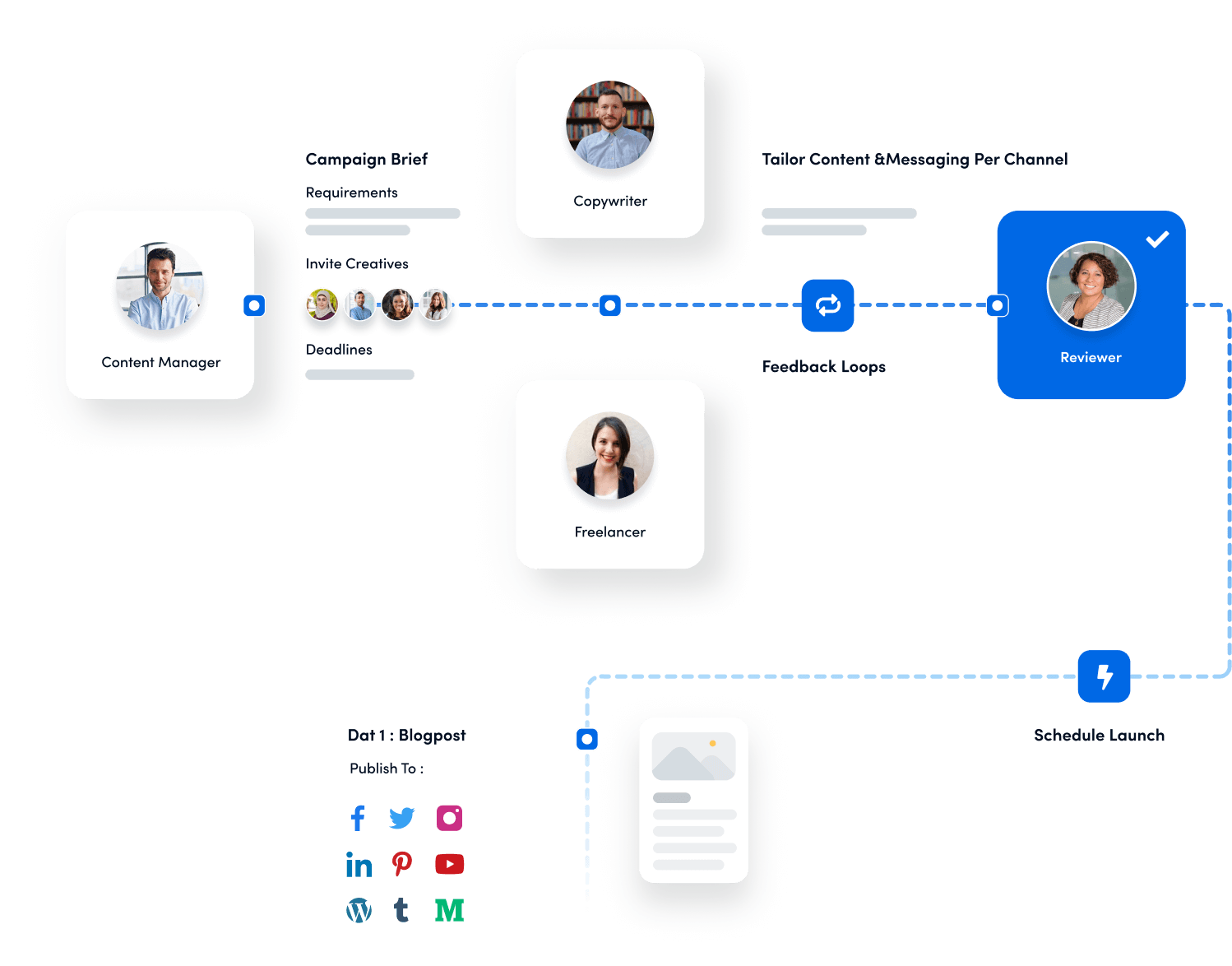
FAQs
Compliance simply means following the rules or adhering to the regulations. Social media compliance is following the rules for the specific media platform or medium, for instance, social media compliance means following regulations when using social media platforms to stay compliant.
Social compliance in marketing refers to implementing marketing tactics under legal boundaries to stay compliant. In other words, it is the act of ensuring that the marketing material and strategies follow the rules, standards, and laws determined by the governing body.
Recommended for you

Social Media Management Costs in 2026: A Pricing Guide for Businesses


Powerful social media management software
7-day free trial - No credit card required.

